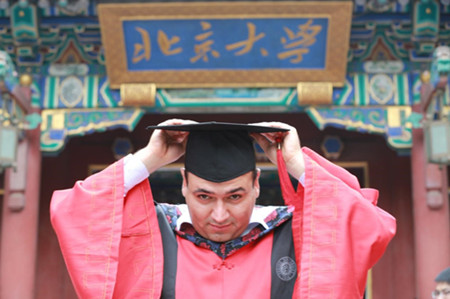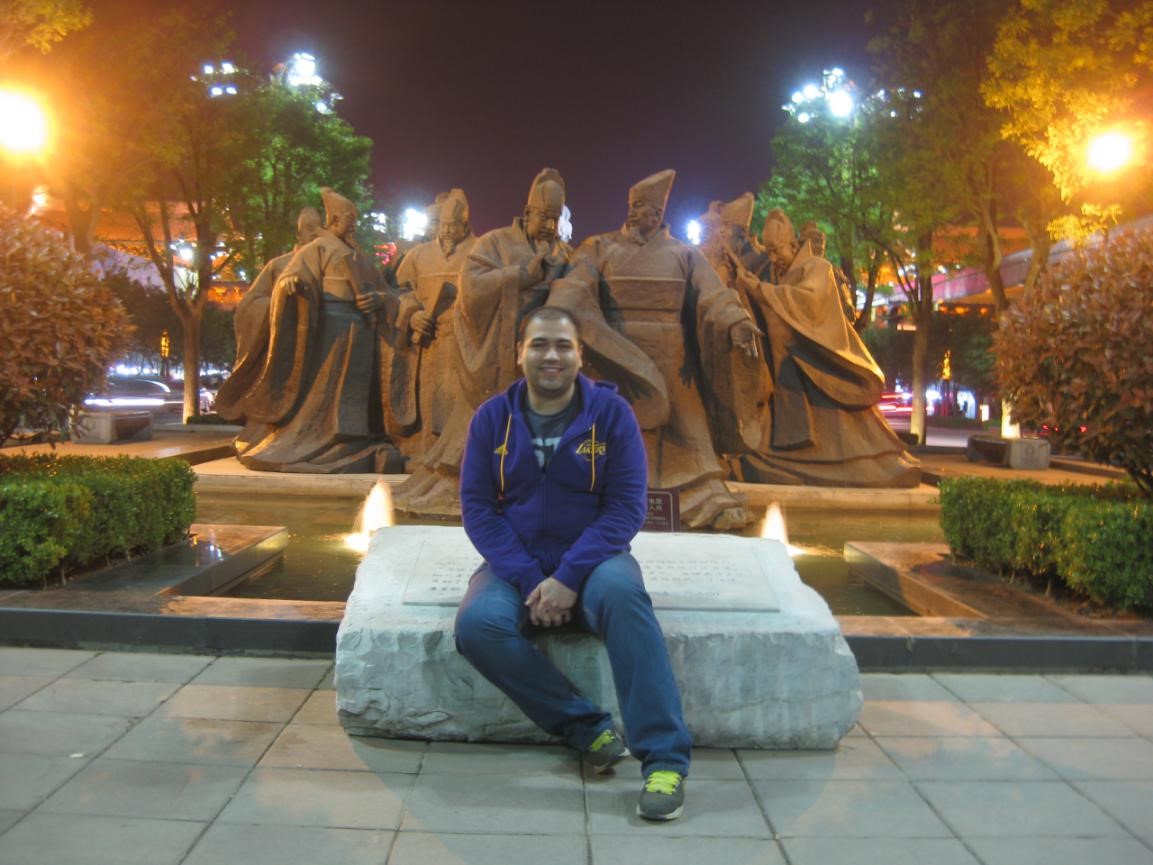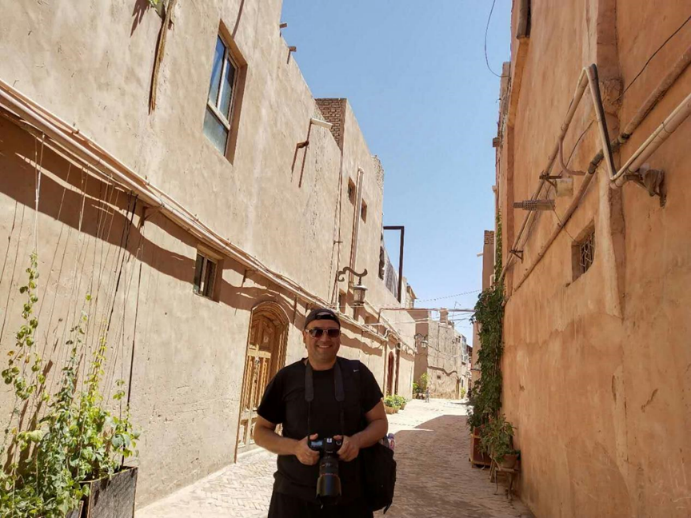Peking University, July 3, 2019: Karimian Hamed, an Iranian Ph.D. holder in Cartography and Geographic Information Systems (GIS), is about to complete his postdoctoral research in the School of Earth and Space Sciences, Peking University this summer.
 Karimian Hamed
Karimian Hamed
China—a country needs to be revisited
During his undergraduate studies in home country, Karimian made up his mind to study abroad, but he never considered China as his destination until he went to Malaysia for his Master’s degree. There he established good relationship with a group of vigorous, confident Chinese students who described China to Karimian as a rising power with long history and profound culture. The image and the latest development of China that he had learned from his peers reshaped his understanding towards this Southeast country. Finally, with the encouragement of his friends and the recommendation of his teacher, Karimian made an important decision—to pursue a Ph.D. degree in China.
However, his family were not in favor of his decision. They preferred him to go to some western countries, because for them, China is a distant and unfamiliar country. “Their understanding of China basically comes from western movies and news, which does not leave a good impression,” Karimian smiled. Even so, Karimian decided to embark on the journey alone. “If you don’t know something, you should go and see it by yourself.”
As things turned out, Karimian fell in love with China. He has been to Tibet, Xinjiang, Gansu, Shaanxi, Guilin, Sichuan and many other places across China, almost covering most part of the country. Karimian is particularly fond of the tenderness of mountains and rivers in Guilin and the vast grasslands and oases in northwestern China, compared with the majority of deserts in Iran.
Karimian’s journey in China
When it comes to Chinese cuisine, Karimian can talk about them with great familiarity. Out of the obsession with spicy food, he even tried the local hot pot when he was doing research in Sichuan. As he got used to dipping food in sesame paste (“Majiang” in Chinese) when eating hot pot, Karimian, as usual, attempted to ask the waiter for sesame paste by enunciating “Majiang”. Hilariously, the waiter misheard and assumed that Karimian felt like playing mahjong, a traditional Chinese board game, thus advising him to head for a tea house nearby.
Meanwhile, Karimian also tried to understand traditional Chinese culture. He can't speak Chinese fluently, but he tried to take calligraphy courses and went to the theater with friends to watch Peking Opera. Although the name of the opera escaped his mind, Karimian is still fond of talking about the characters and plots regarding the opera.
“Chinese culture is wonderful,” Karimian described. “Only after I came to China did I realize that China is a country that needs to be revisited!”
Karimian’s journey in China
“Students at Peking University work very hard”
Karimian chose Peking University because he was told that Peking University is the top university in China, where he can harness rich academic resources and learn from the best teachers. With great enthusiasm in academic research, Karimian stepped into Peking University. He revealed that Peking University students are the most diligent students he has ever met. The students here can efficiently complete their learning tasks. At the same time, they also have an innovative and open mindset, being able to accept other people's ideas and work together to solve problems. These excellent students have also become a model that drives Karimian to work harder. “The Chinese students at Peking University are very excellent at home, but they can also consider going abroad like us to experience different culture and learn more,” Karimian smiled.
Moreover, in Karimian’s view, the relationship between teachers and students in Peking University is more intimate than that in Iran. Karimian likes face-to-face communication, “which encourages me to express my view more bravely and promotes my research,” he said.
Karimian and his Chinese friends
Career blueprint
Karimian has strong passion for academic research. Although he has encountered many setbacks in scientific research, he never gave up. Perhaps for him, these challenges were the stepping stone towards excellence.
Speaking of his future, Karimian put great emphasis on “patience”. He plans to devote his life to academic career. After graduation, he wants to go to a university to do academic research as well as teaching students. Both research and teaching require professionalism and patience to guide students to explore deeper in academic field, and Karimian is ready to confront challenges that lie ahead.
Karimian believes that teachers, aiming at imparting knowledge to students, should have encyclopedic knowledge to answer questions and provide students with fresh ideas. They should enable students to feel that they have gained something after each class, rather than feeling confused. At the same time, he believes that the art of expression is very significant to teachers. Their language should neither be complicated nor ambiguous in case that students have trouble understanding.
Karimian has not yet made a decision over whether returning to Iran to teach or staying in China in the future, but he loves the natural scenery, the people and the culture of China. He will continue to be brave and demonstrate the spirit of adventure in his life just as he decided to come to China years ago.
Profile:
Born in Iran, Karimian Hamed completed undergraduate study in Civil Engineering in his home country and went to Malaysia in 2008 to pursue his Master's degree in Geographic Engineering. Later, he went to Peking University to pursue his Ph.D. in Cartography and Geographic Information System (GIS). As an international student, Karimian has won a full scholarship from the Chinese government.
Karimian's doctoral dissertation is titled “Aerosol Optical Thickness (AOD) derived from MODIS for monitoring fine particulate matter concentration”. It includes satellite-based remote sensing data, ground-based remote sensing data and meteorological data (model-based and observation-based) and other large data sets. With regard to his postdoctoral research, Karimian is trying to use different deep learning methods, such as long-term short-term memory (LSTM) and convolutional neural network (CNN), to predict the concentration of air pollutants in different periods. So far, Karimian has published 19 papers in various journals.
Reported by: Wu Fei
Edited by: Huang Weijian



